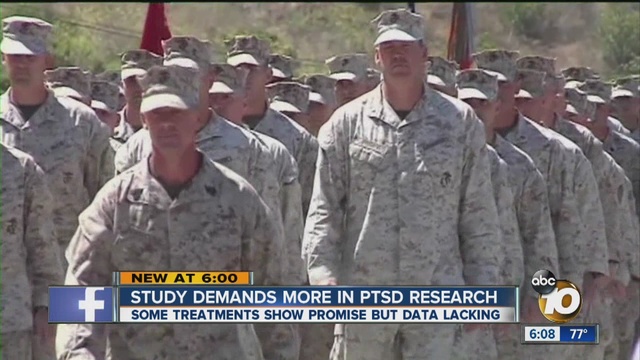|
WASHINGTON - After a four-year study commissioned by Congress, the Institute of Medicine in Washington, D.C., concluded that there are many programs addressing post-traumatic stress disorder, but no one can tell how effective they are.
"We found in the study that some programs do work, but quite a few service members don't like them and therefore don't go to them," said Elspeth Ritchie with Georgetown University and a former Army colonel. "We looked at established therapies, as well as what I call innovative therapies like yoga and acupuncture," she added. They also studied a procedure called stellate ganglion block where an anesthetic is injected into the neck. SGB has been used to block chronic pain receptors but it also has an impact on those with post-traumatic stress. While promising, "There is still much we don't know, that is one shot enough, two or repeated treatments but at what interval?" said Maryam Navaie with Advance Health Solutions, which conducted its own study on SGB. The Institute of Medicine study concluded that despite all the programs for post-traumatic stress disorder, the Department of Defense and Veterans Affairs have no mechanism to collect, analyze or disseminate data as to the quality of PTSD care. ___________________________________________________________________________________________________ Numbers don't lie, right now we are losing more than 22 veterans a day to suicide, we know at the Military Veteran Project lives can be saved. Research and treatments are being done across the nation at various medical facilities to learn more about the brain and researchers have uncovered new details about what happens in the brain when a mild source of stress generates an extreme response, disproportionate to the stress. Their findings identify possible targets for new alternative treatments and therapies to heal the debilitating stress responses that define post-traumatic stress disorder. People develop PTSD after experiencing severe trauma, which in turn makes them hypersensitive to stress even in situations completely unlike the original trauma. To register as a research candidate, CLICK HERE. Subscribe Get Social Participate Advocate
0 Comments
Your comment will be posted after it is approved.
Leave a Reply. |
Sign up for our mailing list by clicking here
Archives
March 2020
|
|
Get to know us
|
Resources
|
Get Involved
|
|
|
|
|
The Military Veteran Project is a non-profit 501 (c)3 organization, IRS identification number 46-0877378. Donations made to the Military Veteran Project are tax deductible in the U.S. ·


 RSS Feed
RSS Feed